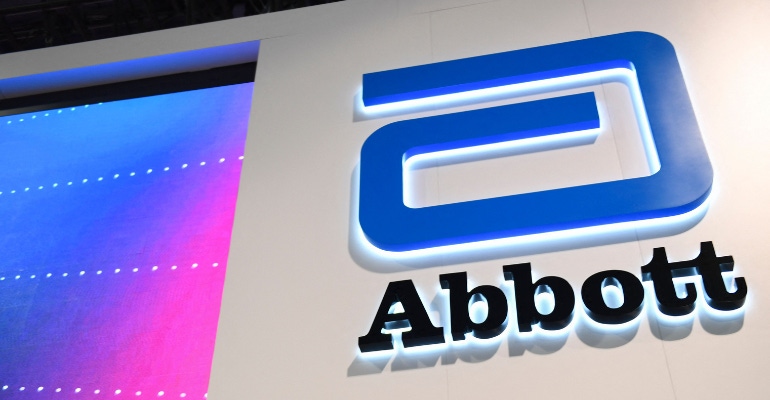FDA approval for the company's new transcatheter aortic valve implantation (TAVI) system is just one of several catalysts Abbott Laboratories has to look forward to this year.
January 17, 2023

At the risk of jinxing the Abbott Park, IL-based company, 2023 could be a standout year for Abbott.
FDA has approved the company's newest transcatheter aortic valve implantation (TAVI) system, Navitor, to treat people with severe aortic stenosis who are at high or extreme risk for open-heart surgery. Abbott won a CE mark for the Navitor TAVI system in 2021.
Marie Thibault, a medtech analyst at BTIG, put Abbott on her list of top picks for 2023.
"We think Abbott's ability to grow sales above peers (after excluding COVID testing and the formula recall), the necessity of many of its products, the potential for operating expense leverage, and strong cash flow generation make it a safe haven in an uncertain economy," Thibault said in a report BTIG published Dec. 5.
In a separate BTIG report, published Dec. 12, Thibault noted several potential catalysts for Abbott in 2023, including FDA approval of the Navitor TAVI system.
"Abbott's Navitor device features advancements to help doctors safely and effectively treat patients with aortic stenosis, including a design that reduces the backflow of blood around the valve that's often a complication following TAVI procedures," said Michael Reardon, MD, Alison Family Distinguished Chair of Cardiovascular Research and professor of cardiothoracic surgery at the Houston Methodist Hospital, who served as principal investigator for the study that led to FDA approval. "The innovative Navitor system also offers physicians stable and accurate device placement, even in challenging patient anatomies."
The Navitor system is designed with a unique fabric cuff (NaviSeal) to reduce or eliminate the backflow of blood around the valve frame known as paravalvular leak (PVL). According to Abbott, the device is also the only TAVI system designed with leaflets within the native valve. This design can help improve access to coronary arteries to facilitate future procedures for treating coronary artery disease. The company also touts excellent hemodynamics, or blood flow, through the valve. The device is implanted using Abbott's FlexNav delivery system, which features a slim design to accommodate different patient anatomies and small vessels for stable, predictable, and accurate valve delivery and placement.
"Navitor is the first TAVI system to offer optimal hemodynamics in all valve sizes while also preserving options for lifetime disease management, an important consideration for physicians and patients when selecting a TAVI solution," said Michael Dale, senior vice president of Abbott's structural heart business. "Receiving this approval is a major next step in our mission to help people live better lives through better health."
Another potential catalyst that could benefit Abbott in 2023, according to Thibault, is a proposed local coverage determination that could broaden continuous glucose monitoring (CGM) access to about 1.5 million more patients. Anticipated in the second half of the year, the coverage determination would expand Medicare and Medicaid coverage of CGM devices for people with Type 2 diabetes using a basal-only insulin regimen. This reimbursement win benefit Abbott's FreeStyle Libre 3. As Thibault noted, however, it would be more impactful to competitor Dexcom's total revenue, given that Dexcom is a standalone CGM company.
About the Author(s)
You May Also Like




